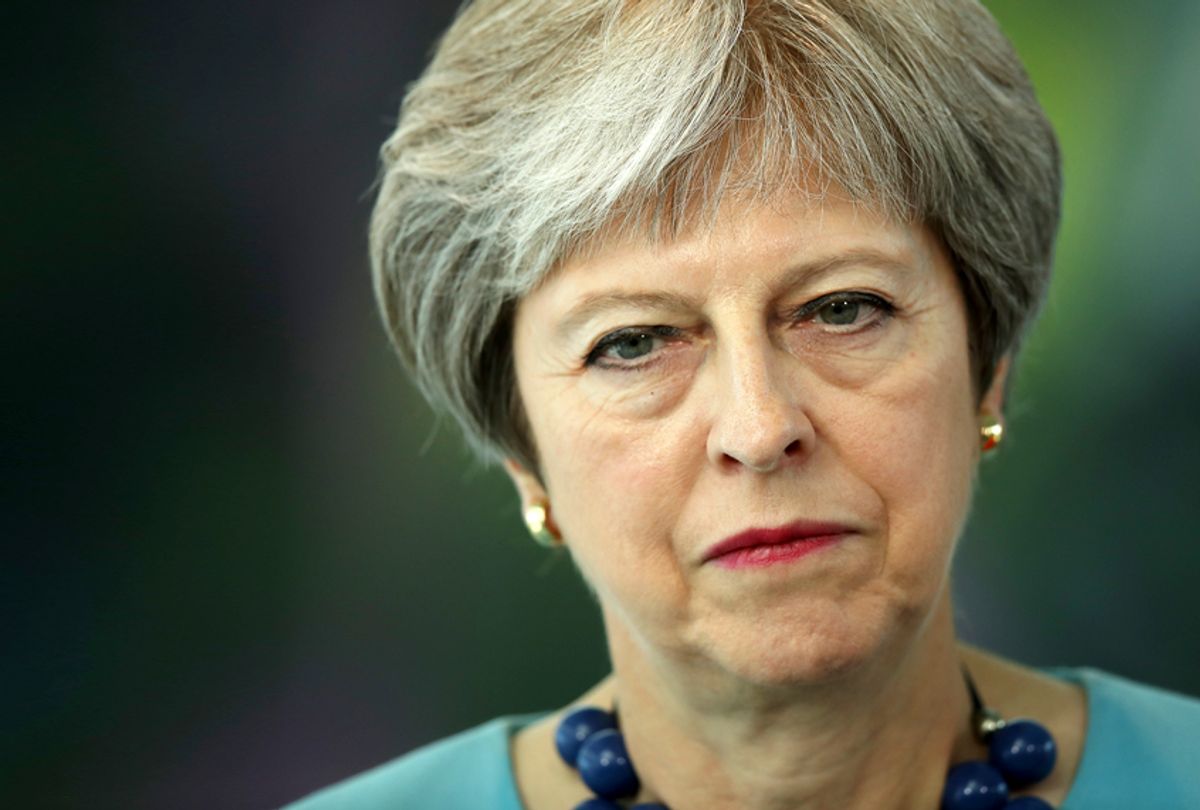The British government was defeated yesterday in a number of votes in the House of Commons relating to Brexit. So what happens now?
The first point to remember is that government defeats happen. It is in the normal order of democracy. Prime Minister Theresa May has not had a happy Brexit since July 2016.
She chose in the first instance to side with the hard end of the Brexit ideologues — proclaiming that “No deal was better than a bad deal” and that British citizens who wanted to keep access to living or retiring in Europe were “citizens of nowhere.”
Even in recent times, she has described as “queue-jumpers” the many hard-working European Union citizens who work in the UK’s public services, notably the state-run National Health Service.
May’s rhetoric
For all that hard rhetoric, she accepted a deal that would leave the UK bound by EU rules for an indefinite period after leaving on March 29, 2019.
In order to preserve peace in Northern Ireland, she agreed in effect that the UK might stay for a very long period in the EU Customs Union. This kills the claims by the anti-EU campaigners who argued with passion that, outside the EU, Britain could sign trade deals with the United States and other countries around the world.
As long predicted, there appears not to be a majority for any Brexit outcome in the House of Commons. Mrs. May has lost support of the 10 ultra anti-EU hardline protestant MPs from Northern Ireland.
The votes are embarrassing defeats, but there is no evidence that Tory MPs want to plunge their party and nation into the crisis of removing a Prime Minister and finding a new one (who would have no answers to the problem of finding a satisfactory Brexit).
Political instability everywhere
The news of the 799 point drop in the main Wall Street index suggests a global economic crisis may be on the way. EU growth is weak and the political crisis in France, the fading away of Angela Merkel or the appearance of a Franco era extremist party winning seats in a big regional election in Spain shows how politically unstable Europe is.
Britain, where the Brexit vote in June 2016 pre-figured the arrival of the nationalist populist protectionist politics of Donald Trump, is part of a wider Euroatlantic crisis where neither the managers of politics or the economy have the support of citizens.
In Britain, Labour is making a great ado about its defeats of Mrs. May yesterday. In truth, it was the Scottish nationalist and Liberal Democrats — sworn enemies of Labour in domestic politics — who provided the votes to add to Labour’s to defeat Mrs. May.
Even as they enjoy their win over May, the main UK opposition parties have no common line on Brexit. Labour, for example, still sides with May in that it wants to end freedom of movement — one of the four indivisible EU freedoms which are written into the EU-UK political declaration.
Labour will vote a motion of no confidence in Mrs. May. However, even the most-hardened Brexiteer is unlikely to vote for Jeremy Corbyn and risk a general election, which would feature the prospect for a hardline left Labour party poised to enter government.
So what when that fails in the forthcoming sequence of votes? 65 Labour MPs and nine Tory MPs want a new referendum. But so far both May and Corbyn reject that idea.
There is discussion of the UK opting for a Norway-type future with loose talk of the UK accepting membership and obligations of the European Economic Area. This means accepting all EU rules and laws notably on freedom of movement which both Tories and Labour oppose.
United yet disunited
So as the dust settles on an exciting day in the Commons, the key fact remains that the coalition of MPs who defeated Mrs. May are united in disliking her — but disunited on the way forward.
Mrs. May can either withdraw next Tuesday’s vote or carry on to the bitter end. Often in the Commons, once MPs have had their moment of protest they then return to the fold to avoid a total political catastrophe.
About 30 MPs did not vote yesterday. They might actually provide a narrow majority for May next week. Many hard-line anti EU Tory MPs say that they will hold their noses and vote for the deal, get rid of Mrs. May, get out of the political EU, elect a new anti-EU leader and prime minister and move forward to detach Britain from Europe.
And if Mrs. May is defeated, can she ask Brussels and the EU27 for a few warm words to be added to the political declaration which is already full of incoherent contradictions between a UK wish list and the EU upholding its core principles?
Conclusion
The message from the Commons is No to Theresa May, but not Yes to any alternative. The ball is in Mrs. May’s court. Can she offer a way out?
All of this is reminiscent of the claims in August 1914 that the war would be over by Christmas.
This article is republished from The Globalist: On a daily basis, we rethink globalization and how the world really hangs together. Thought-provoking cross-country comparisons and insights from contributors from all continents. Exploring what unites and what divides us in politics and culture. Follow us on Facebook and Twitter. And sign up for our highlights email here.




Shares